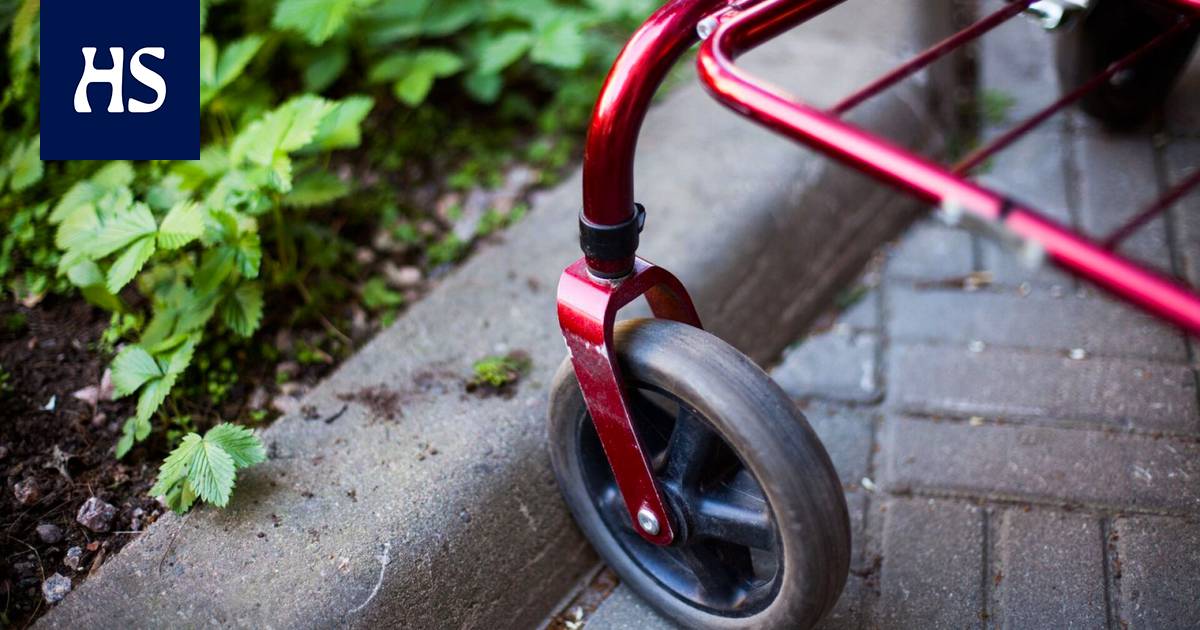The remote and inconvenient location of the City of Helsinki’s assistive technology center has received a lot of criticism.
Helsinki the city has made it difficult to return aids. Apuvälinekeskus is located in a back alley quite far from public transport connections, customers say.
The location of the center is of great importance, as those who do business in the center may often have challenges with movement. In addition, some of the aids are large, such as toilets or rollators.
The city has long had problems with the return of aids: They don’t want to find them back at the center. This has caused considerable financial losses to the city every year.
Read more: Nobody seems to know where the crutches and wheelchairs owned by Helsinki are located – HS obtained a report that reveals a decade of chaos
The city of Helsinki hopes that customers would show appreciation for the service by returning the aids when they no longer need them. However, according to the customers of the auxiliary equipment service interviewed by HS, it has not been made easy for them to return tools that have become unnecessary.
Helsinki The city’s Apuvälinekeskus is located in the industrial area of the Konala district. The walking distance from the nearest bus stop to the equipment rental office is more than 550 meters, which is a long way to transport equipment for many people with poor mobility. In addition, it is difficult to find the center at the back of the industrial area without precise guidance.
“The location of the building in a shabby industrial area, behind a sloped cape and bad signs is interesting”, who shopped at the aid center during the summer Liisa Erä-Esko describes.
That place is “absolutely impossible”, says the person who returned his mother’s rollator, shower chair and walking stick in June Tuulikki Poukka.
“Apuvälinelainaamo is located at the end of the Konala industrial area, and it was not easy to find it even with a navigator. It would have been completely impossible to return the public instruments.”
Poukka wonders how people with reduced mobility are expected to be able to independently return the aids to the hard-to-reach loan office.
“In my opinion, it should be possible to return the aids either to the nearest health center or somewhere in the center of Helsinki. It should also be possible to leave the aids directly at the hospital in connection with possible follow-up checks.”
Alppila resident Kirsti Henriksson at the beginning of July tried to return the aids left by her late husband. It was not possible for the 83-year-old who lives on the fifth floor to return large objects such as a rollator, toilet seat and shower chair by himself, and he asked the assistive device service about the possibility of picking up the unnecessary objects.
To his surprise, he learned that the Aid Center does not pick up unnecessary aids from customers’ homes.
“Returning the instruments was quite rough. I don’t understand why they don’t have a pickup service,” says Henriksson.
Henriksson points out that large-sized aids cannot fit in an ordinary car, and that it is completely impossible to return several objects at once on public transport. According to him, the journey from Alppila to Konala is also unreasonably long.
In the end, Henriksson had to order a farm taxi for the return, which cost more than 100 euros including the allowance.
“How are the needy supposed to return their aids? Even the objects my husband used were expensive aids and in almost new condition. You would think the city would be more interested in recovering them.”
Town’s The Apuvälinekeskus was previously located in Laakso Hospital, from where the auxiliary equipment services were moved to Konala due to the new joint hospital construction project.
The center’s new location has been perceived as challenging, admits the head physician of Helsinki Hospital Laura Pikkarainen. Weak public transport connections have been complained especially by those living in Eastern Helsinki.
“Konala was chosen as the new location because of the site’s accessibility, the number of parking spaces and the large hall there. Storing tools and the washing machine used to wash them requires a lot of space,” explains Pikkarainen.
Pikkarainen admits that it is currently not easy for people with reduced mobility to get to the Aid Center by public transport. However, he says that the city of Helsinki is having discussions about moving the bus stop closer to the aid loan office.
All mobility aids that are no longer needed should currently be returned directly to Konala’s aid center. Health centers do not accept aids that are no longer needed, and Pikkarainen does not feel that returning the equipment to the nearest health center would make sense.
“For hygiene reasons, the tools must always be washed before borrowing, and in that case you would not be able to get accurate information about the exact location or condition of the tools.”
The City of Helsinki has understood that the accessibility of the assistive device service must be improved, and that the return of devices must be made easier.
“During the fall, we are experimenting with a mobile unit that travels around senior centers. In the future, a mobile unit could possibly be a solution for the customer to return aids that are particularly difficult to move.”
#Healthcare #Helsinki #absolutely #impossible #return #aids #customers


/https://content.production.cdn.art19.com/images/4d/2b/0b/19/4d2b0b19-4420-4c82-81f2-210dc9f90db7/e7b597ba1e6d245e87d0822b41432b1f179103cb901ecdef91422ecb96a066)




/cloudfront-eu-central-1.images.arcpublishing.com/prisa/R45JRFN7VNA4FCKN72CHYAWWGQ.jpg)

